Bogus refugee claimant accused of murder
Maclean’s investigates how a repeat felon, ordered deported 10 years ago, managed to stay in Canada
Jayson Mills
Share
When emergency crews rushed through the front door that winter night—Jan. 21, 2014—they found white tiles covered in blood and two people clinging to life. It was a gruesome, chaotic scene, even for a seasoned paramedic. Whoever swung the blade, again and again, had already fled.
Anita Summan, who owned the home in Brampton, Ont., was lying at the bottom of the main wooden staircase, alert but fading. Summan’s daughter, in her bedroom when the assailant pounced, had sprinted to her side. “She was still alive,” says Sonali Summan, 22. “I was in a hysterical shock, trying to figure out what was going on.”
Steps away, near a back living room, Gurcharan Doal was losing blood by the second. The owner of a Mississauga clothing store, the 46-year-old had just dropped off his nephew, who rented one of the small apartments in Summan’s basement. “I was only there for two or three minutes, that’s it,” Doal recalls. It all happened so fast that he didn’t see his attacker’s face. Doal doesn’t even remember falling down. “I froze,” he says.
Early the next morning, Peel Regional Police issued a warrant for their prime suspect: Iqbal Singh, a Punjabi Sikh who arrived in Canada a decade earlier. By the time investigators posted his mug shot online, Anita Summan was dead—rushed to hospital, but too wounded to save—and Doal was in a coma.
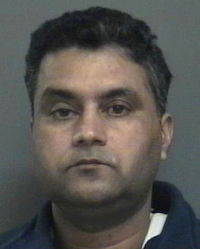
The manhunt did not last long. Singh surrendered that same morning and was charged with multiple offences, including second-degree murder. Police said the crime appeared to be a domestic dispute (that Singh was Summan’s “estranged” second husband) and the story quickly faded from the headlines.
Five months after Iqbal Singh gave himself up, a Maclean’s investigation has uncovered the full, disturbing story of that blood-soaked Brampton hallway—and how a repeat felon, first ordered deported 10 years ago, was somehow never removed from Canada. Now 47, Singh was a failed refugee claimant, a convicted drunk driver, and a dangerous man with a history of violence. Just 12 months before he allegedly butchered Anita Summan, he was charged with assaulting her (inside the very house where she was later slain) and slapped with a restraining order.
Now she is dead, and a man who should have been ousted long ago is an accused killer.
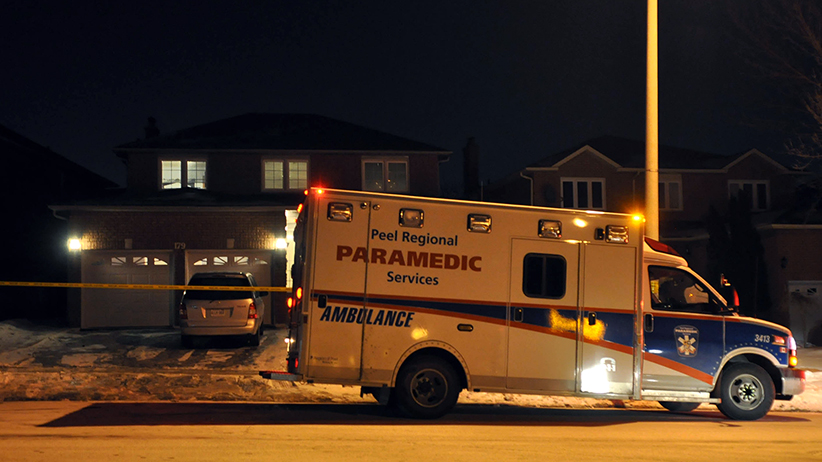
How to get rid of dangerous non-citizens has been a constant struggle for the federal government. The issue reached a boiling point in 1994 after two infamous murders in Toronto: the shotgun slaying of Georgina “ViVi” Leimonis at a Just Desserts café, and the killing of police constable Todd Baylis. Suspects in both cases were born somewhere else, never applied for citizenship, and had previously been ordered deported because of criminal convictions—but never actually removed.
Jean Chrétien’s Liberals responded to the backlash with legislation that made it easier to deport foreign criminals and, in the years since, Ottawa has assured Canadians that the system has been thoroughly overhauled. Last year alone, the Canada Border Services Agency (CBSA) deported more than 2,000 people whose criminal records rendered them inadmissible. “Protecting the safety of Canadians is a top priority for the CBSA and we place the highest priority on removal cases involving national security, organized crime, crimes against humanity and criminals,” an agency spokeswoman told Maclean’s.
Yet Singh’s case raises some of the same troubling questions that were supposedly answered 20 years ago. Why was this criminal never deported? Could more have been done to expedite Singh’s file? Did nobody at the border agency grasp the potential risk he posed? While awaiting his eventual deportation, Singh was required to report once a month to a CBSA office in Mississauga, Ont. He last checked in on Jan. 21—just hours before his alleged rampage.
In a case that’s already shocking enough, there’s one more tragic twist: It appears Anita Summan and Iqbal Singh were never a genuine couple to begin with. Their marriage (if they were truly married) had all the hallmarks of a scam, a fraudulent attempt to secure permanent residency for Singh, one of Summan’s former employees.
Three times, Summan filed a spousal sponsorship application with the federal immigration ministry, and all three times they were refused. In 2008, one immigration officer expressed “concerns” about their story because “sufficient evidence has not been provided to substantiate this relationship.” Not one of the applications, since disclosed in court, includes a marriage certificate.
Even Summan’s grieving daughter now admits the marriage was a fake. “My mom, she was a very caring person and she wanted to help as many people as possible,” Sonali says. “She was a very kind lady.”
In the end, that “kindness” may have helped her alleged killer stay in the country just long enough to take her life.
BORN IN THE Punjabi city of Jalandhar, Anita Summan was a bride by 17 and a mom by 18. Her son, Rinku, was still a baby when her husband, Hussan Lal, left for Canada in search of a better life for all three. Rinku celebrated 10 birthdays by the time he and his mother were allowed to join his dad in Ontario. “My mom basically took care of my brother on her own for 10 years,” Sonali says. “She used to tell me it was a very difficult time.”
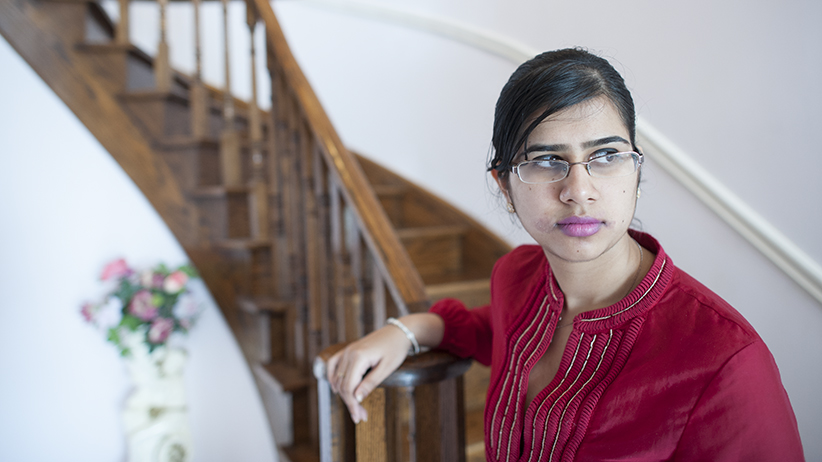
Canada was good to the family. After Sonali was born, her parents bought a two-storey, two-garage home in Brampton, in an ethnically diverse neighbourhood where colourful saris are as common as blue jeans. Among fellow Sikhs, Hussan and Anita had a reputation for generosity, always willing to help. Sonali can’t count the number of friends and relatives who slept in their basement after landing in Canada, forever grateful for her parents’ hospitality.
Hussan operated a one-truck shipping company, transporting auto parts from factory to factory. He and his wife craved the best of both worlds for their children: the traditions of their old country, and the opportunities of the new. When Rinku—obsessed with airplanes since he was a little boy—told a high school teacher he wanted to be a pilot, the teacher personally drove him to the Brampton Flying Club. As always, his parents supported his dream, proudly displaying his flying trophies on their mantel.
Tragedy struck—for the first time—in 2004, when Hussan developed a sudden bout of pancreatitis and fell into a coma. Just 49, he never regained consciousness. Like those early years back in India, Anita Summan was once again a single mother. “She was very tough,” Sonali says. “She did everything on her own, and she really didn’t ask for much help. She would always try to figure things out.”
Determined to keep her husband’s trucking company in business, Anita hired two drivers: one for day shifts, one for nights. That’s when she first met Iqbal Singh.
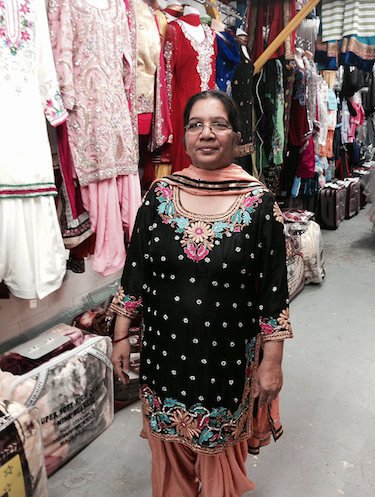
A farmer from Maddoke, a small village in Punjab, Singh turned up in Montreal in 2003 and immediately applied for asylum. According to records from the Immigration and Refugee Board (IRB), he said he was arrested and tortured by Indian authorities for his alleged links to Sikh extremists, and was at risk if returned home. But the IRB did “not give any credence” to his version of events because he had no “credible and trustworthy evidence” to back it up. In fact, the panel accused Singh of “hiding information” about his whereabouts from 1994 to 2003 that “would have destroyed” his story. “There is no credible basis to this claim,” the panel ruled on May 6, 2004.
At that point, Singh was subject to a removal order—an order that was never executed.
He tried to ask the Federal Court to overturn the IRB’s decision, but it refused to hear his appeal. He also applied to stay on “humanitarian and compassionate” grounds, but Immigration refused that request, too. Whatever faint hope Singh may have had was dashed for good on the night of March 13, 2005, when a police officer noticed his car at an intersection, stopped dead at a green light.
The officer pulled him over and asked if he’d consumed any alcohol. When Singh admitted to drinking two beers, the cop administered a breath test. Singh blew over the limit.
Charged with impaired driving, Singh actually managed to convince a judge to throw out the evidence, arguing that the officer had no reasonable suspicion to administer a Breathalyzer because he didn’t smell alcohol on Singh’s breath and didn’t ask when, exactly, he had drunk the beers. An Ontario Superior Court judge later overturned the decision—“there was ample evidence” to warrant a breath test, he ruled—and ordered a new trial. When Singh was finally convicted in 2008, the guilty verdict sealed his inadmissibility; according to the Immigration and Refugee Protection Act, any non-citizen convicted of such a serious crime is not allowed to stay in Canada.
That same year, 2008, the border agency asked the Indian government to issue the necessary travel documents, Maclean’s has learned. Without that paperwork, Singh’s deportation could not go ahead.
Tragically, India never did issue those documents. Whether the CBSA should have been more insistent—a formal letter, for example, or a phone call to a senior consular official in Ottawa—is a question agency officials are now asking themselves.
One thing, though, is certain: By the time Singh was convicted of drunk driving, he had already hatched another plan to avoid removal.
THEY TOLD THE government they met at a Halloween party in 2004, just seven months after the sudden death of Anita Summan’s first husband. They exchanged phone numbers, they said. Went to the movies. To Niagara Falls. By March 2005, Singh said he had moved into Summan’s home. “We started living together and still live together in a very happy, loving and caring relationship,” they later wrote, in one of many documents submitted to the government.
They filed their first spousal sponsorship application in 2007, while the impaired driving charges were still pending. Singh and Summan presented themselves as a common-law couple, but while their application was being processed, they claimed to have wed in a civil ceremony—at the Brampton house, with a few friends and relatives as witnesses. Neither of Summan’s children was there.
Sonali says she didn’t attend because the ceremony never happened. It was fiction. Her mom lied about the wedding, she says, because Singh was a good employee and she sympathized with his immigration problems. “She said: ‘I’m only doing this so he could get his papers,’ ” Sonali recalls. “She was just doing this to help him out.”
Singh did live at the house for a while, she says: in one of the basement apartments.
An immigration officer who interviewed the supposed newlyweds was understandably suspicious. “I have concerns that the sponsor, Anita, chose not to invite her children to her wedding with Iqbal,” the officer wrote. “All the business and home ownership documents are in Anita’s name . . . I believe that Iqbal Singh works with Anita, and that he is a dedicated employee. I am, however, not satisfied that sufficient evidence has been provided to substantiate this relationship or that this couple are co-habitating together.”
They filed a second sponsorship application in 2009, and eventually attended another interview. This time, the immigration officer didn’t even get to the bona fides of their union; Singh’s drunk-driving conviction was evidence enough. Although Summan insisted Singh “was a good man now,” the officer had no choice but to deny the application. “Since you are the subject of a removal order, this letter is being copied to the Canada Border Services Agency, Enforcement Centre,” the officer wrote on March 22, 2011. “You will be contacted in the near future by that office to make removal arrangements.”
As he had for so many years, Singh filed another round of appeals. He asked the Federal Court to review the second failed sponsorship bid; it refused. He submitted another “humanitarian and compassionate” application; it was denied. He and Summan filed a third spousal application; rejected again. He even requested a pre-removal risk assessment, a process that considers whether he could be subject to cruel and unusual punishment if flown back to India. That, too, did not return the result Singh was hoping for.
Maclean’s has learned that, in 2012, CBSA followed up with the Indian government—nearly four years after the agency first asked for the travel documents needed to send him home. Nobody responded. That continuing delay allowed Singh to remain a free man in Canada, as long as he checked in with the border agency once a month. Which he did.
It’s hard to imagine why Iqbal Singh would have wanted to hurt Anita Summan. Whatever the truth about their purported marriage, she was one of the few Canadians who tried to help him. But on Jan. 9, 2013—one year before he allegedly stabbed her with a kitchen knife—Singh revealed the kind of violence he was capable of, flying into a drunken rage and assaulting Summan in her house.
By then, Singh was no longer living in the Brampton basement (nor working for Summan’s trucking company, which had since closed). Exactly what triggered the assault is not clear. What is clear, according to court documents, is that Singh spent two nights in jail and was only released because he agreed not to contact Summan, nor venture within 100 m of her house.
Like the system that failed to deport him, the restraining order did not work.
THREE MONTHS AFTER Singh was charged with assault, a Boeing 747 roared down the runway at Bagram airfield in Afghanistan, bound for Dubai. Among the crew in the cockpit was first officer Rinku Summan, Anita’s son. Married with a young boy of his own, he was now living in Michigan and working for a private cargo airline. “He wanted to fly a 747 for as long as I can remember,” his sister says. “That was his dream, and he did get it.”
By now, millions of strangers have watched the horrifying footage online: a giant jet wobbling through the sky—like a child’s kite—before plummeting to the ground and bursting into flames. Although some early reports suggested a possible Taliban attack, investigators concluded that a sudden load shift inside the plane triggered its demise.
Anita Summan was inconsolable, as any mother would be. “She fell into a depression after my brother passed away,” says Sonali, who works at a dental office. “She used to sit at home all day, stare out the window and just cry. She would say: ‘He was my first-born. I did everything. What did I ever do to deserve to have him taken away from me?’ ”
As the months passed, Anita, 51, eventually found some semblance of escape. A seamstress by trade (and a designer by heart), she asked her friend, Gurcharan Doal, if she could sell some of her dresses in a corner of his Mississauga store. He agreed.
The night she was killed—Jan. 21—Anita and Sonali had just returned home from the warehouse, where they were still setting up. Doal stopped by the house shortly before 10 p.m. to drop off his nephew, the basement tenant. “I was upstairs in my room,” Sonali remembers. “I heard a scream and someone being pushed into a wall.” She darted downstairs. “There was blood everywhere, from my kitchen to my front door.”
The culprit had come out of nowhere.
It didn’t take long for news of the stabbing to spread to the Canada Border Services Agency. Not only was the alleged knifeman the subject of a removal order, but he had checked in, as required, that very day.
Asked why Singh was never deported, a CBSA spokeswoman said the Privacy Act prohibits the agency from discussing case details that aren’t already public. But in a prepared statement, the agency did say removals can be delayed if CBSA has “difficulty obtaining passports or visas to permit the person to enter another country.”
Reg Williams is the former director of CBSA’s Greater Toronto Enforcement Centre, Canada’s largest. He knows full well that some countries, India included, can take years to respond to a request for travel documents. But he says the agency also has an obligation to exert pressure on foreign states in certain situations, and is “shocked” that more wasn’t done to expedite Singh’s file—especially after the assault, when all his immigration appeals were exhausted. “No follow-up with the Indian Consulate, no escalation to the Indian High Commission, nothing,” Williams says. “The CBSA has a legal obligation under immigration legislation to remove expeditiously. That would imply not letting lengthy periods of time pass by without action. And that’s what happened in this case.”
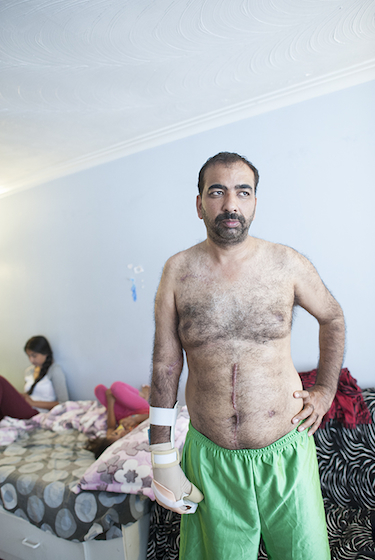
Williams saw first-hand how broken the system was when Baylis and Leimonis were gunned down in 1994. (In 2011, Ottawa finally acknowledged some of those failings, settling a long-standing, multi-million-dollar lawsuit with the families of Baylis and another officer who was wounded in the same shooting.) Williams also knows how drastically the system improved in the two decades since. But he says he can’t blame people who may assume, after reading about this case, that little has really changed. “Cases like this do nothing to reassure Canadians that case files are being closely managed and that community safety and security is paramount,” he says. “How many other similar cases are in the system and how closely are they being managed? What assurances do Canadians have that this scenario will not repeat itself?”
Gurcharan Doal certainly wants some answers. Five months after he was nearly killed, the father of three can still barely move his right hand. Slashed repeatedly, he suffered severe nerve damage that will take years to heal, if at all. “Why did the Canadian government not send him back?” he asks, sitting on his living room couch, a plastic brace on his arm. “The government did nothing.”
Doal was in a coma for six days, his fate uncertain. He has yet to set foot in his store, and says he’s lost more money than he cares to count. “I was successful here, a very good businessman,” says Doal, a Canadian citizen since 1998. “Now, suddenly, almost everything is gone.” He is so distressed that, when people ask about his injuries, he tells them he was hurt in a car crash.
Sonali Summan was not wounded that night, but she, too, has lost so much. Her Brampton home—full of memories with her mom, dad and brother—is now empty and quiet, except for her. “I hope he gets the longest sentence known to mankind,” she says, sitting on one of her living room couches, a framed photo of her mom hanging nearby. “I hope he suffers like he made my mother suffer.” (A date for Singh’s trial has yet to be set, and his lawyers declined to speak to Maclean’s without their client’s permission. He is considered innocent unless proven guilty.)
Sonali knows her mother wasn’t honest with the federal government, and should not have lied for Iqbal Singh’s benefit. But that doesn’t mean the border agency is blameless, she insists. “I am angry,” Sonali says. “He should have been deported. People like this shouldn’t be in Canada.”